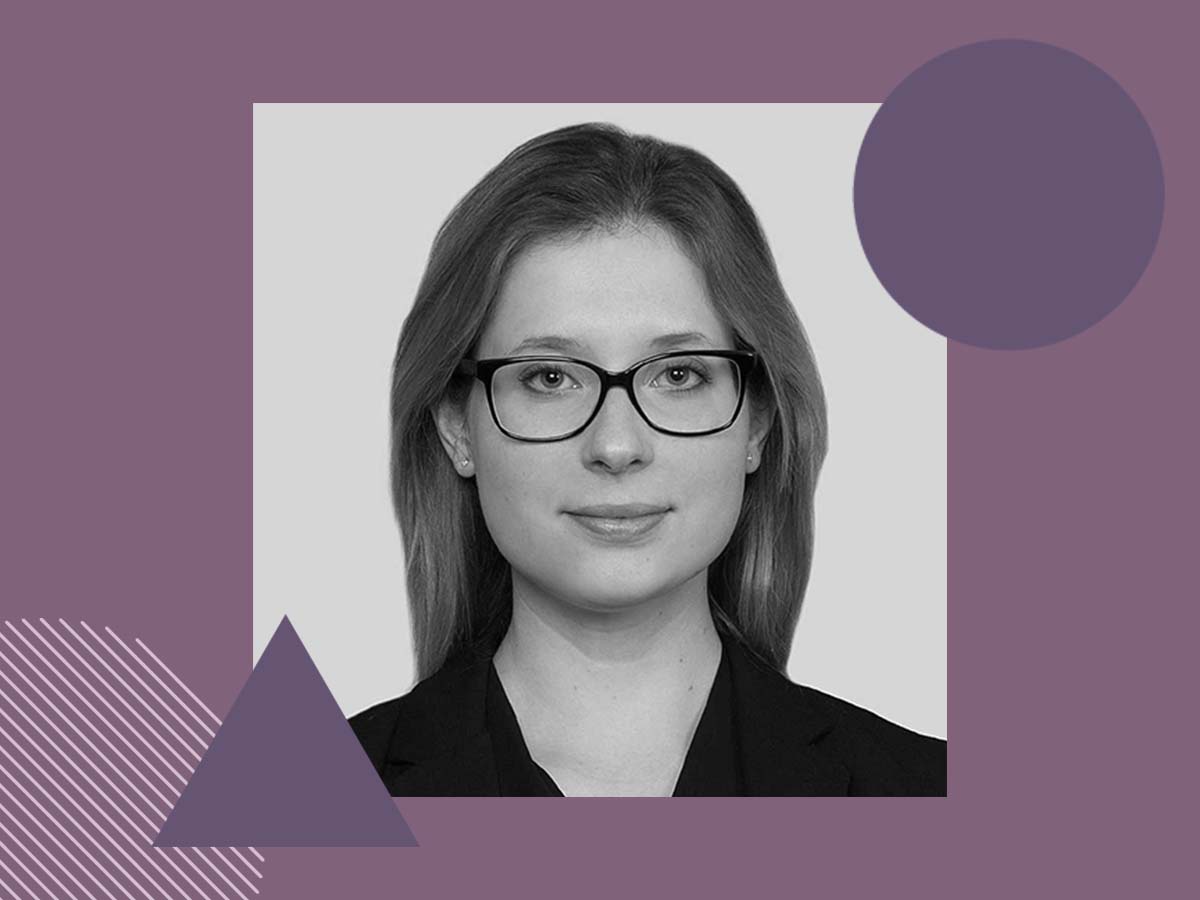Communication inequalities and incomplete data hinder understanding of how social media affect vaccine uptake.
Viswanath K, Lee EJ, Dryer E.
BMJ. 2024 06 20. 385:e076478. PMID: 38901868
Lee Kum Kee Professor of Health Communication
Social and Behavioral Sciences
Faculty Affiliate in the Department of Global Health and Population
Global Health and Population
Harvard T.H. Chan School of Public Health
Co-Director, Lee Kum Sheung Center for Health and Happiness
Social and Behavioral Sciences
Harvard T.H. Chan School of Public Health
Dr. K. “Vish” Viswanath is Lee Kum Kee Professor of Health Communication in the Department of Social and Behavioral Sciences at the Harvard T. H. Chan School of Public Health (HSPH) and in the McGraw-Patterson Center for Population Sciences at the Dana-Farber Cancer Institute (DFCI). He is also the Faculty Director of the Health Communication Core of the Dana-Farber/Harvard Cancer Center (DF/HCC). Other additional administrative and scientific leadership positions held by Dr. Viswanath include: Director of the Center for Translational Communication Science, DFCI; Director, Harvard Chan India Research Center and Director, Lee Kum Sheung Center for Health and Happiness, Harvard Chan. He is the founding Director of DF/HCC’s Enhancing Communications for Health Outcomes (ECHO) Laboratory.
Dr. Viswanath’s work is driven by two fundamental concerns: (a) how to center equity in drawing on translational communication science to promote health and well-being for ALL population groups, and (b) to involve community-based organizations and stakeholders through participatory research in promoting social change. The ultimate goal of the program of research in his lab is to influence public health policy and practice through knowledge translation and translational communication. His work draws from literatures in communication science, social epidemiology, dissemination and implementation, and social and health behavior sciences.
His work so far has documented the relationship between communication inequalities, poverty and health disparities, and knowledge translation to address health disparities. He has written more than 300 journal articles and book chapters concerning communication inequalities and health disparities, knowledge translation, public health communication campaigns, e-health and digital divide, public health emergency preparedness and the delivery of health communication interventions to underserved populations. He is the Co-Editor of four books and monographs: Mass Media, Social Control and Social Change (Iowa State University Press, 1999), Health Behavior and Health Education: Theory, Research & Practice, 5th Ed. (Jossey Bass, 2015), The Role of Media in Promoting and Reducing Tobacco Use (National Cancer Institute, 2008) and A Socioecological Approach to Addressing Tobacco-Related Health Disparities (National Cancer Institute, 2017) and a co-author of The First 1000 Days of Life: Lessons from Social and Behavior Change Communication (Ministry of Women and Child Development, Government of India, 2021). He was also the Editor of the Social and Behavioral Research section of the 12-volume International Encyclopedia of Communication (Blackwell Publishing, 2008)
He has served and continues to serve on several national committees including for the US Department of Health and Human Services (HHS), the Centers for Disease Control and Prevention (CDC) and the National Academy of Sciences, Engineering and Medicine (NASEM). He is currently the Chair of NASEM’s Consensus Study Committee on Understanding and Addressing Science Misinformation, a member of the Standing Committee on Advancement of Science Communication at NASEM, and was a member of NASEM’s Planning Committee on The Public Health Infodemic and Trust in Public Health as a National Security Threat: A Workshop.
In recognition of his academic and professional achievements, Dr. Viswanath received several awards and honors.
For more information about Dr. Viswanath’s research, visit https://www.hsph.harvard.edu/viswanathlab/.
Joseph W. Cullen Memorial Award
American Society of Preventive Oncology
Dale Brashers Distinguished Mentoring Award
National Communication Association
Fellow
International Communication Association
Outstanding Health Communication Scholar Award
International Communication Association and the National Communication Association
Mayhew Derryberry Award
American Public Health Association
Fellow
Society for Behavioral Medicine
Fellow
Midwest Association for Public Opinion Research
Postdoctoral Mentor of the Year
Dana-Farber Cancer Institute
College of Liberal Arts Alumnus of Notable Achievement
University of Minnesota
Viswanath K, Lee EJ, Dryer E.
BMJ. 2024 06 20. 385:e076478. PMID: 38901868
Lee EWJ, Bao H, Wu YS, Wang MP, Wong YJ, Viswanath K.
Sci Rep. 2024 05 11. 14(1):10779. PMID: 38734824
Dhawan D, McCloud R, Pinnamaneni R, Arora G, Kadam R, Dutt A, Biswas-Ramchandran N, Viswanath K.
Cancer Control. 2024 Jan-Dec. 31:10732748241255538. PMID: 38736171
Viswanath K, Agha S.
Glob Health Sci Pract. 2023 Dec 18. 11(Suppl 2). PMID: 38110199
McCloud RF, Bekalu MA, Vaughan T, Maranta L, Peck E, Viswanath K.
Glob Health Sci Pract. 2023 Dec 18. 11(Suppl 2). PMID: 38110208
Tan ASL, Chen JT, Keen R, Scout N, Gordon B, Applegate J, Machado A, Hanby E, Liu S, Zulkiewicz B, Ramanadhan S, Obedin-Maliver J, Lunn MR, Viswanath K, Potter J.
Am J Prev Med. 2024 May. 66(5):840-849. PMID: 38065403
Wang MP, Lam TH, Viswanath K, Cheng RCK, Kwok TTO, Cheung DYT, Wong CKH, Lee JJJ, Chan HCH.
Hong Kong Med J. 2023 Dec. 29 Suppl 7(6):4-8. PMID: 38148648
Dhawan D, Pinnamaneni R, Viswanath K.
Sci Rep. 2023 11 07. 13(1):19353. PMID: 37935737
Marciano L, Vocaj E, Bekalu MA, La Tona A, Rocchi G, Viswanath K.
J Med Internet Res. 2023 09 19. 25:e45540. PMID: 37725422
Jadhav PA, Hole A, Sivaprasad M, Viswanath K, Sahay M, Sahay R, Bhanuprakash Reddy G, Murali Krishna C.
Spectrochim Acta A Mol Biomol Spectrosc. 2024 Jan 05. 304:123337. PMID: 37703793
A symposium at Harvard Chan School brought together academics, community leaders, activists, mindfulness practitioners, and monastics who studied under Thich Nhat Hanh to explore the intersection of health, mindfulness, and climate change.
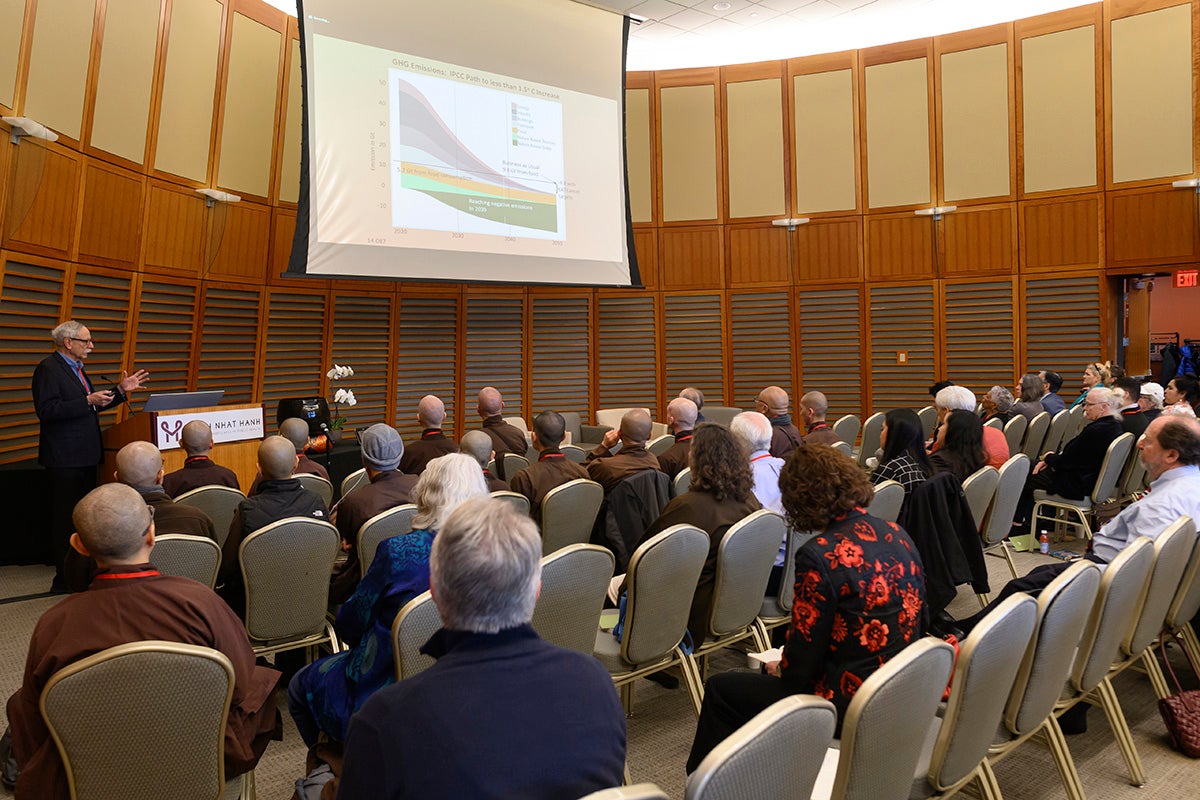
Two faculty members from Harvard Chan School are among 19 from across Harvard selected to receive support from the Salata Institute Seed Grant Program, launched in April to fund interdisciplinary research in climate and sustainability.
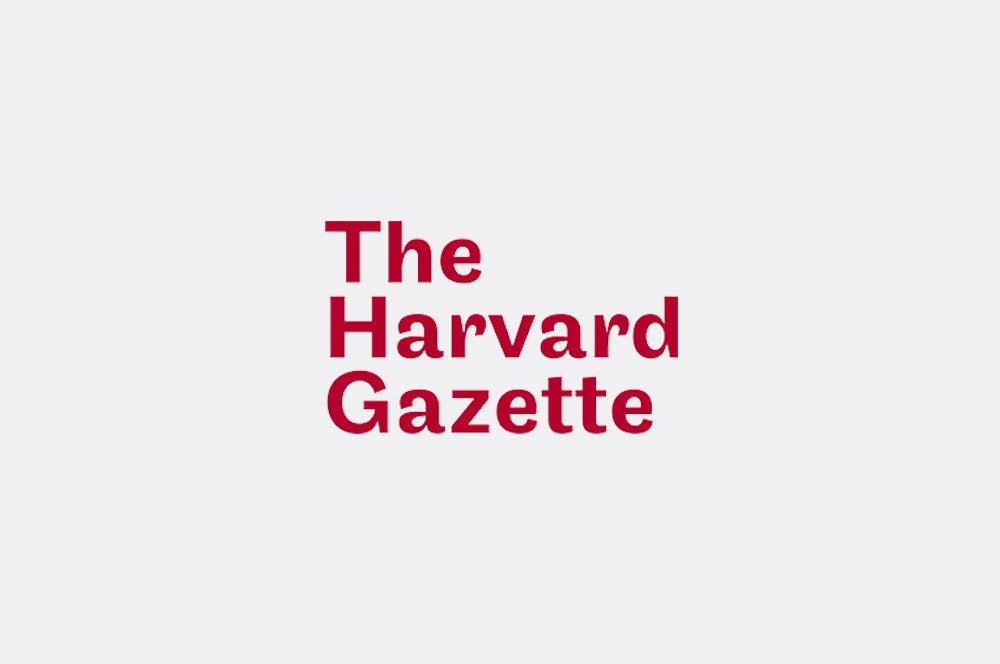
Two dozen social media influencers who post regularly on mental health—with a combined audience of 20 million—have been able to connect with Harvard Chan faculty and experts on effective communication as part of the Harvard Chan School Creators…
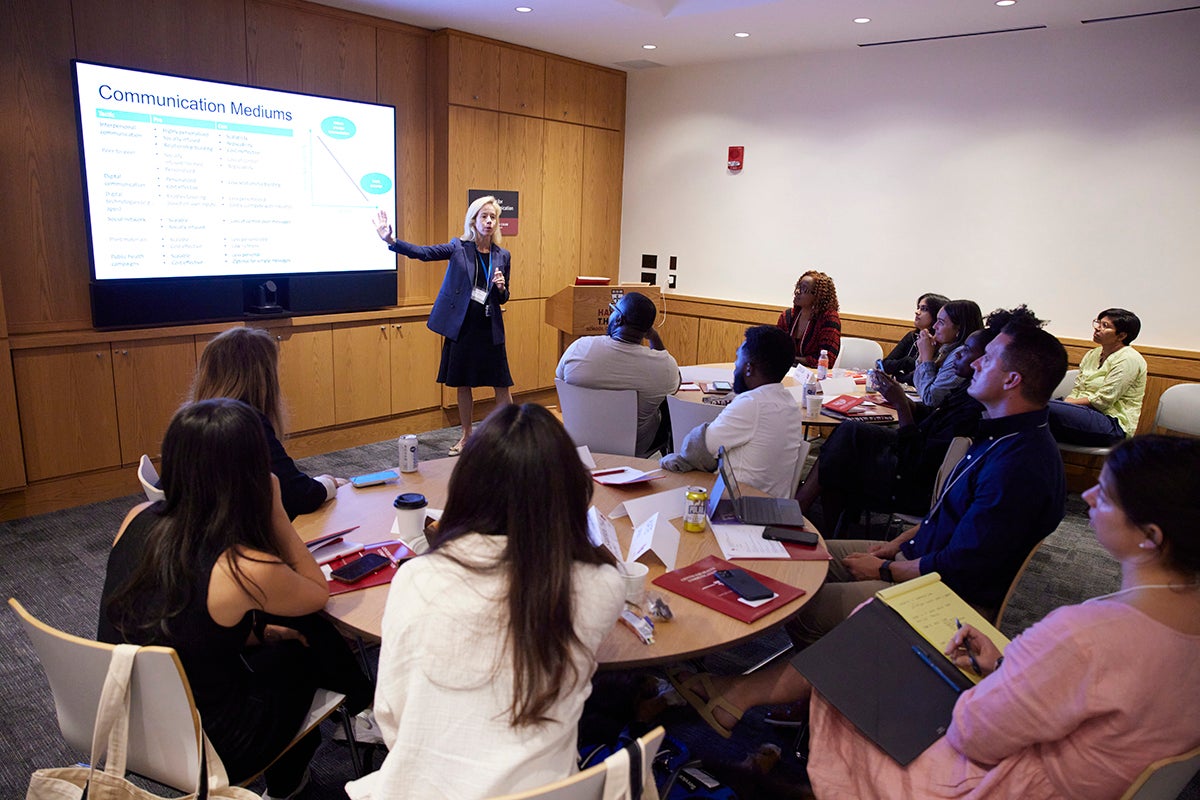
Eighty-five high school students from the U.S. and beyond learned about climate change from a variety of perspectives—and got ideas on how to tackle the climate crisis in their own communities and beyond—at an annual youth summit held…
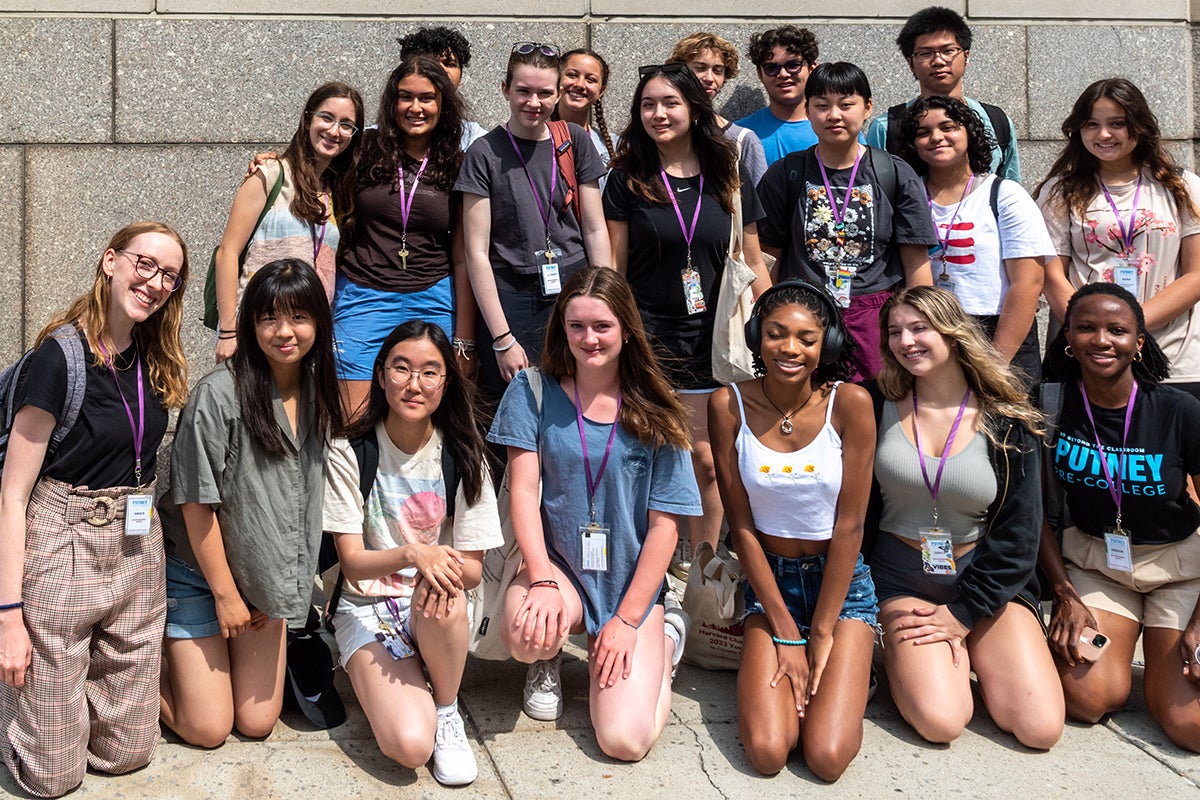
Postdoctoral research fellow Laura Marciano says that social media use might be detrimental for young people’s well-being but can also have positive effects.
